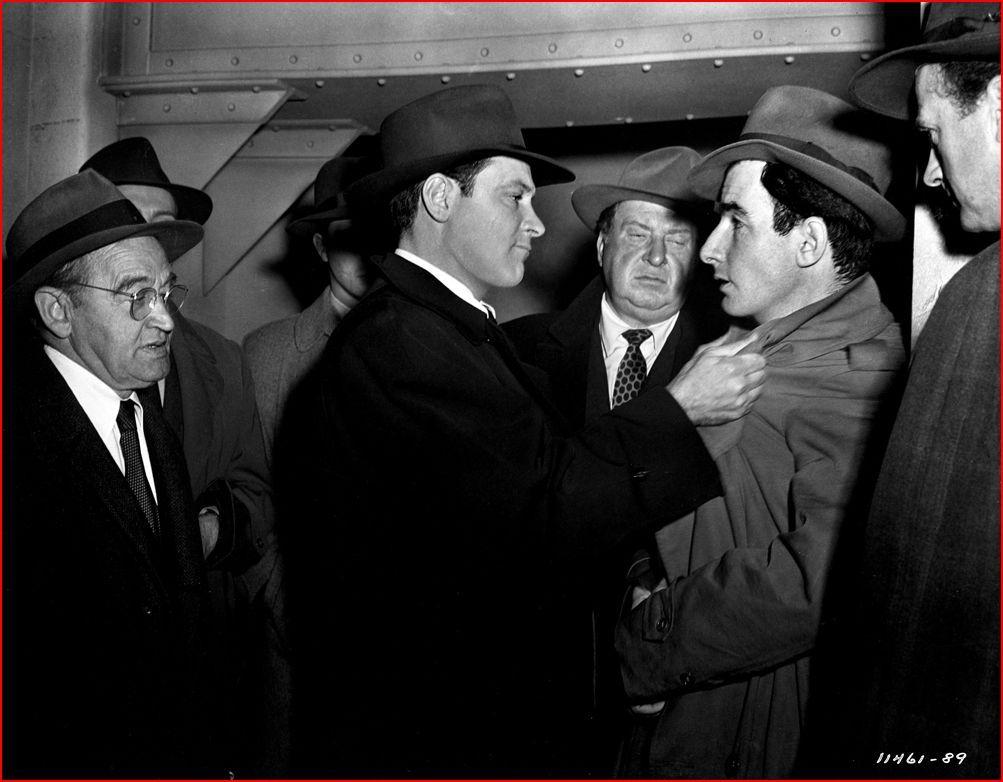 Inescapable
Inescapable
Directed by Ruba Nadda
Written by Ruba Nadda
Canada, 2012
It is no secret that virtually every story has been told already. There are, as it would seem, no remaining new and original tales for screenwriters and directors to share with audiences at this point in time. Sure, some of the details my be re-arranged so as to keep projects as fresh as possible, but the bare essentials remain the same. It is similar to pizza and its many possible toppings. One may bury in meat, vegetables or a pleasant mixture of both, it’s still a pizza. Sometimes however, the sense that a story has been told before in film comes as more obvious, not necessarily because of remakes or reboots (although those are quite prominent), but because a film driven by the same storyline literally came out only a short time ago. In such cases, how the filmmakers choose to play with exactly the same ingredients is of the utmost importance. Taken, from 2009, created quite a stir in the movie world for its brash depiction of an aging Liam Neeson’s capacity to hunt down people who kidnapped his daughter. The year is now 2012, and Inescapable, from director Ruba Nadda, is apparently the new Taken.
Adib (Alexander Siddig) is a man of Syrian origin living in Toronto. Having immigrated many years ago, he has long made his life in the Canadian metropolis, married a beautiful woman and had two daughters currently in early adulthood. Adib’s immigration to Canada has been a blessing in disguise, literally: the life he left behind in Syria, a life in which he worked for the government as a spy, is one he has never wanted to bring up or return to again. Life has a funny way of toying with people, and when he learns that his eldest daughter, Muna (Jay Anstey), did not restrict her photography shoot to the Mediterranean Europe, but made a pit stop in Syria, Adib can already begin to guess that she may have wanted to explore the past her father never discusses at the dinner table. The problem is that she seems to have gone missing, something that immediately sets the alarm bells ringing in Adib’s mind, especially what with the current social and political strife which has erupted in the streets of Damascus and elsewhere. He therefore takes the earliest flight back to his native land to meet up with old friends, like the general Sayid (Oded Fehr), old flame Fatima (Marisa Tomei) to whom he was once engaged and a representative of the Canadian embassy in Damas, Paul (Joshua Jackson). Each will either assist or attempt to slow Adib down in his desperate search to rescue Muna.
It should be quite evident, after reading the synopsis, why the introductory paragraph made reference to Liam Nesson’s surprise action hit from a few years ago. The setting is a different country, the origins of the protagonist differ as well to a degree, but on the whole the setup, and in some instances even the strategies the hero adopts to go about his mission, resemble Taken in striking fashion. Granted, Inescapable is a Canadian production which in all likelihood, much like the vast majority of Canadian films, will not see much play time away from home soil, it nevertheless makes for an interesting comparison and watching these two pictures as a double bill would surely result in a stimulating experience for those who enjoy the game of contrasting and comparing when it comes to movies.
‘…Inescapable‘s protagonist is quite believable on paper and as depicted on screen. It also helps that the filmmakers make him a conflicted character…’
There are some critical elements which enable Ruba Nadda’s film to differentiate itself from the aforementioned Euro-thriller. Chief among them is the fact that, while Adib is a former member of a government spy nest or possibly some sort of secret police faction (the film never makes it explicitly clear what exactly he was once a part of. Needless to say, he did some ‘bad things’ back in the day), he, unlike Neeson’s character in Taken, is much less driven by a ferocious anger which compels him to lash out and literally thrash all those who stand in his way. Adib is getting not getting any younger and therefore prefers to use what connections he has within the Syrian government apparatus in order to make some headway. That in of itself, when one considers the nation’s political climate, already sees the protagonist incur significant risk. Adib is a tactician in his approach, building new contacts and relying on old ones in order to navigate the infamously treacherous streets of Damascus, where secret police representatives may be lurking just about anywhere. In that sense, Inescapable‘s protagonist is quite believable on paper and as depicted on screen. It also helps that the filmmakers make him a conflicted character by making it quite clear that some of the same people who could prove to be his undoing were once close allies, even friends, such as Sayid, who is genuinely pleased to see Adib for the first time in years, yet upon learning the nature of his old acquaintance’s visit to Syria, begins to show a more hostile side to his character despite himself. Audience’s follow a man who is very familiar with the territory, who knows it like the back of his own hand, but who had hoped he would never have to return for the rest of his life and thus holds deeply ambiguous feelings towards the place he once called home.
Alexander Siddig, an actor who has never become a household name in Canadian film despite having worked on a steady amount of projects, some for which he collaborated with director Ruba Nadda, is by far the best actor in the film. He is a strong dramatic performer, capable of making the viewer believe that the weight of the world very well may be resting on his shoulders. He knows how to play the part of a character who can trudge along despite a heavy heart. He gets angry while never sending his own performance into cheap melodrama. He is, on the whole, quite a classy, sophisticated actor, someone the viewer can naturally gravitate towards and easily cheer on. On the other end of the spectrum, so far as the thespians are concerned, is Marisa Tomei. This review shall not venture to argue that she is a poor actress. She has proved time and time again, through a great multitude of fine, impressive roles, that she is and always has been someone who can bring her a-game to a set. The issue in Inescapable is the, well, inescapable belief that she is miscast. Why exactly is she playing a Syrian born and raised character who speaks English with a fantastically thick accent? There is an incredibly fine line delineating performances from actors portraying an ethnicity or culture vastly different from their own which succeed or fail. Readers should not take away from this article that author cannot identify films in which such attempts are successful, for there are many. Nevertheless, the failures, when they happen, feel all the more flat, and, as great as an actress Tomei is, Inescapable is one of those failures. It simply comes off like she is pretending to be a Syrian who speaks English with a harsh accent and thus distracting. Joshua Jackson, incidentally enough, seems to fit nicely in the role of the pampered if ultimately ineffectual diplomat who in reality is in over his head when the palpable danger makes its presence felt.
‘Further taking Inescapable down a few notches is a final act which stuffs far too much plot than is necessary.’
Ruba Nadda’s decision to set the story in the contemporary Syria readers and listeners of world news have been learning about since March 2011 proves to be a double edged sword. For one, it helps emphasize the odds against which Adib is confronted. The Assad regime is ruthless towards dissenters and indisposed to relinquishing what hold he has left on the presidency despite what other, influential nations have to say. The notion of spies and secret police observing and snatching up enemies of the state, whether the accusations are founded or not, is another pertinent ingredient to the story and raises the stakes. And yet, despite the freshness of the topic, one wonders of Inescapable will suffer a Green Zone effect. Paul Greengrass’ film is so concentrated on one short period of American military history that some years down the road it may be viewed as a time capsule, too much of its period. That film, at least, is about an event (or series of events, really) that everyone the world over is familiar with. True enough, anyone who glances the international headlines should have at least the slightest idea of the current happenings in Syria. Just how familiar are people with the film’s context is another matter altogether. No one would belittle the events transpiring as this article is being written. For those who truly understand it, it is huge stuff. How many know about it and, more importantly, how many really understand it or will bother to understand it once another chapter in Syria’s history has begun…that is not for this movie reviewer to say. The point is brought up because there are lines of dialogue which explicitly makes reference to the ongoing strife. Lines like ‘Yes, my daughter chose to come to Syria at a really bad time’ are certainly not hiding the film’s backdrop.
Further taking Inescapable down a few notches is a final act which stuffs far too much plot than is necessary. Rather than keep the story lean, which it actually is for the most part, director and screenwriter Ruba Nadda insists on adding more character motivations which really serve no greater purpose other than to complicate matters. Ultimately, the movie will interest those who enjoy solid mysteries with some mild thrills thrown in for good measure. It is an ‘adult’ oriented thriller, to put it another way. A bit too sloppy near the end and handicapped by one disappointingly distracting role, Inescapable is a fair Canadian drama, but it won’t fascinate as much as the actual headlines. There are good Canadian newspapers for that.
Edgar Chaput






